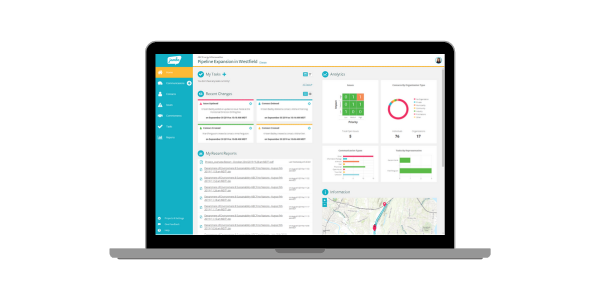
A medida que las empresas europeas se enfrentan a la complejidad de las cuestiones medioambientales, sociales y de gobernanza (ASG), se reconoce cada vez más que la transparencia y la rendición de cuentas son esenciales para generar confianza entre las partes interesadas.
Un aspecto clave de esta tendencia es la creciente demanda de informes de sostenibilidad, que permiten a las empresas demostrar su compromiso con prácticas empresariales responsables.
La necesidad de informar sobre sostenibilidad en Europa
En los últimos años, las empresas europeas se han visto sometidas a una presión cada vez mayor para adoptar enfoques más rigurosos en la elaboración de informes de sostenibilidad.
Este cambio se debe a varios factores:
- Requisitos normativos: A partir de enero de 2024, la Directiva sobre Informes de Sostenibilidad Corporativa (CSRD) entrará en vigor y se aplicará progresivamente a más de 45.000 empresas europeas, incluidas más de 10.000 multinacionales extracomunitarias.
- Expectativas de las partes interesadas: Inversores, clientes, proveedores, empleados, asociaciones comerciales y comunidades exigen cada vez más transparencia a las empresas sobre sus prácticas e impacto en materia de sostenibilidad.
- Gestión de riesgos: Las empresas reconocen que las cuestiones ASG pueden tener implicaciones financieras significativas, por lo que la gestión proactiva de estos riesgos a través de informes sólidos puede ser fundamental para su éxito continuado.
Directiva CSRD: una nueva era para los informes de sostenibilidad
El CSRD es una directiva reguladora de la Unión Europea (UE) creada para reforzar la divulgación de información sobre sostenibilidad por parte de las empresas. Se basa en el marco de información ESG de la UE, pero adopta un enfoque más amplio de la divulgación de la sostenibilidad. Las empresas deben informar utilizando las Normas Europeas para la Elaboración de Informes de Sostenibilidad (ESRS).
La directiva ofrece directrices claras sobre qué deben revelar las empresas y cómo. Se acabaron los informes limitados al carbono: la Directiva amplía el ámbito de aplicación para incluir la contaminación, la gestión del agua, la reducción de residuos y el impacto en la biodiversidad. Las empresas deben informar anualmente sobre estos temas, junto con sus estados financieros, y someterlos a auditoría.
¿Por qué introducir el CSRD y a quién se aplica?
La UE introduce el CSRD para armonizar las prácticas de información sobre sostenibilidad en toda Europa. Este planteamiento normalizado permitirá a los inversores y otras partes interesadas comparar más eficazmente el impacto ambiental y social de una empresa.
El CSRD se aplicará a las siguientes empresas:
- Las grandes empresas que cotizan en bolsa, los bancos y las compañías de seguros ya están sujetos a la Directiva sobre información no financiera.
- Otras empresas de la UE que cotizan en bolsa
- PYME europeas cotizadas
- Grandes empresas privadas europeas
- Empresas no europeas con actividad significativa en la UE
El CSRD se centra en varios principios fundamentales:
- Materialidad: Las empresas deben identificar los temas ASG más relevantes para su negocio e informar sobre ellos.
- Compromiso de las partes interesadas: Las empresas deben comprometerse con las partes interesadas para comprender sus preocupaciones y expectativas e incorporar esta información a sus informes.
- Transparencia: Las empresas deben proporcionar información clara y concisa sobre sus resultados y progresos en materia de sostenibilidad.
El papel del compromiso de las partes interesadas en los informes de sostenibilidad
La participación de las partes interesadas es un componente esencial de la DSRG, ya que permite a las empresas comprender mejor las necesidades y expectativas de quienes se ven afectados por sus operaciones.
Al comprometerse con las partes interesadas, las empresas pueden:
- Identificar temas ESG importantes: Las empresas pueden conocer los temas que más importan a sus grupos de interés y priorizar su información en consecuencia.
- Generar confianza y credibilidad: El compromiso de las partes interesadas ayuda a fomentar la transparencia y la responsabilidad, esenciales para generar confianza entre inversores, clientes, empleados y comunidades.
- Mejorar los resultados de sostenibilidad: Al tener en cuenta las opiniones de las partes interesadas, las empresas pueden identificar áreas de mejora y desarrollar estrategias específicas para abordar sus retos de sostenibilidad.
La implicación efectiva de las partes interesadas exige que las empresas escuchen activamente sus necesidades y preocupaciones e incorporen esta información a sus procesos de información y toma de decisiones.
 A medida que se aplica el Reglamento CSRD, aumenta la importancia de elaborar un plan eficaz de participación de las partes interesadas. Asegúrese de que todas las interacciones con sus grupos de interés quedan registradas para poder informar sobre ellas en sus informes de sostenibilidad. No espere a que sea un requisito para su empresa; no hay mejor momento para empezar que ahora.
A medida que se aplica el Reglamento CSRD, aumenta la importancia de elaborar un plan eficaz de participación de las partes interesadas. Asegúrese de que todas las interacciones con sus grupos de interés quedan registradas para poder informar sobre ellas en sus informes de sostenibilidad. No espere a que sea un requisito para su empresa; no hay mejor momento para empezar que ahora.
El software Jambo Stakeholder Relationship Management (SRM) ha sido diseñado específicamente para que las empresas gestionen y realicen un seguimiento de los datos de participación de sus grupos de interés, facilitando la elaboración de informes al respecto. Con Jambo, las empresas pueden agilizar fácilmente sus procesos de participación de los grupos de interés, realizar un seguimiento de las métricas clave e informar sobre su progreso. ¿Por qué no reserva una llamada de 15 minutos con nuestro equipo para hablar de sus necesidades?







